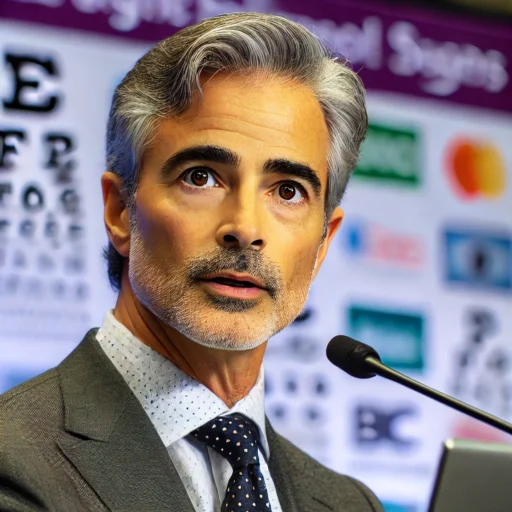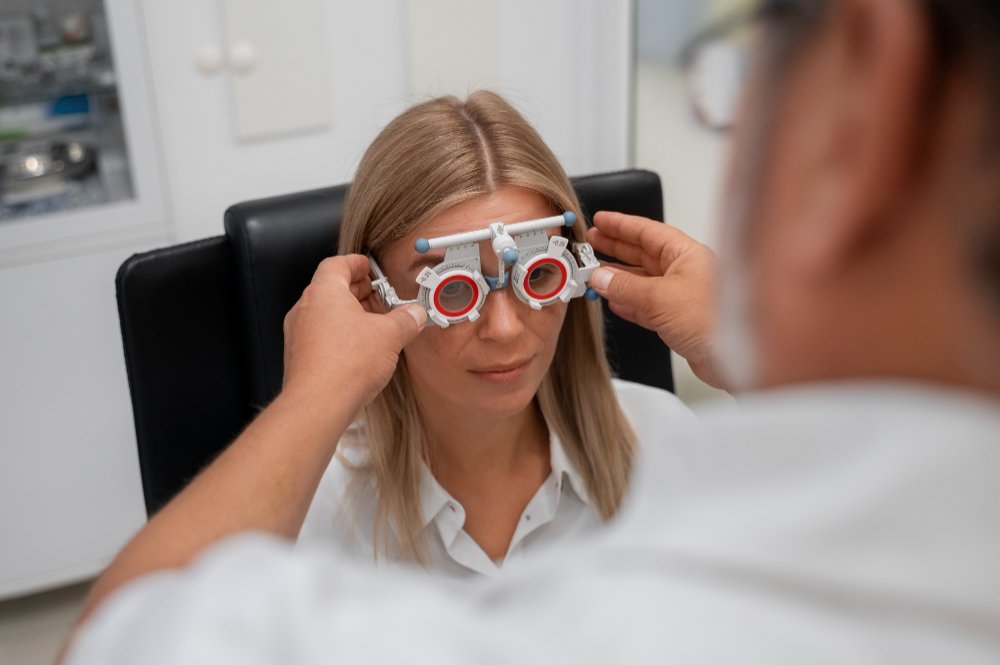


Preventive Eye Care Tips from Ophthalmologist Dr. Shaun Segal
August 26, 2025

Dr Shaun Segal





Our eyes are one of the most delicate organs of the human body yet. They help us experience the world, get in touch with people and complete daily activities. Still, in today’s digital age, eye health is often ignored. From continuous screen exposure to environmental toxins, our eyes face many challenges every day. Preventive care can create all differences in maintaining long -term vision health.
As an experienced ophthalmologist, Dr. Shaun Segal emphasized the importance of initial interventions and simple lifestyle changes that can protect the vision for the coming years. Eye lane should not be complicated – it is about being consistent and active.
Why Preventive Eye Care Matters
Many eye conditions develop quietly, showing only symptoms when significant damage has already occurred. Common problems such as glaucoma, cataracts and detected degeneration can gradually go to someone’s attention. As long as patients seek treatment, vision loss can sometimes be irreversible.
Preventive helps in eye care:
- They continue before they find the problems.
- Reduce the risk of loss of vision from chronic conditions.
- Improves the general quality of life by preserving clear, comfortable vision.
Dr. Shaun Segal believes that small daily habits can reduce the possibility of serious eye problems when combined with regular control.
Everyday Habits for Healthy Eyes
1. Follow the 20-20-20 Rule
With increased addiction to the screen, the digital eye strain is now a common concern. A simple technique to protect your eyes is 20-20-20 rules: every 20 minutes, look at something 20 meters away for at least 20 seconds. It reduces fatigue and helps to relax the muscles that focus.
2. Stay Hydrated and Eat Nutritious Food
The eye is closely associated with health extraction. Vitamins A, C and E, with omega -3 fatty acids, play an important role in preventing conditions such as dry eye and discovered degeneration. Including foods such as carrots, spinach, fish, nuts and citrus fruits can nourish the eyes.
3. Save Eyes from UV Rays
As a skin, your eyes are unsafe for harmful ultraviolet (UV) radiation. Long -term risk increases the risk of cataracts and other vision problems. Wearing sunglasses with 100% UV security is a simple but powerful way to secure your eyes outwards.
4. Maintain Proper Hygiene with Contact Lenses
For users of contact lenses, hygiene is necessary. Incorrect handling can cause infection and corneal damage. Always wash your hands before touching the lens, avoid sleeping in them until they determine, and replace the lens as recommended.
5. Rest enough
Sleep is necessary to restore eye health. Inadequate relaxing can have dryness, twitching or blurred vision. A steady sleep plan not only supports the general welfare, but also the visual comfort.
Preventing Age-Related Eye Issues
As we age, the risk of conditions such as glucoma, diabetic retinopathy and cataracts increases. Regular check with an ophthalmologist can help detect initial signals and provide proper treatment. Dr. Shaun Segal advised more than 40 people to plan the annual eye examination, even though the vision seems normal.
Lifestyle factors such as controlling blood sugar, dealing with blood pressure and avoiding smoking also play an important role in preventing age -related views.
When to See an Ophthalmologist
While regular eye examinations are important, some warning signals should never be ignored. If you are experiencing, you must immediately pay attention:
Sudden sight loss or blur.
Constant eye pain or redness.
Light or shine of floats.
Difficulty adjusting the darkness.
Early medical help can often save vision.
Dr. Shaun Segal’s Approach to Eye Welfare
The origin of preventive eye care has awareness and stability. Dr. Shaun Segal combines advanced clinical equipment with a patient -centric approach and ensures that each person receives personal guidance. Whether it handles dry eyes, determining corrective lenses or treating complex conditions, their focus is on long -term eye health and quality of life.
Final thoughts
Your vision is precious, and care for it should be a priority. Preventive steps – whether right, protection against UV rays, or plan for regular control – are small investments that receive lifetime benefits.
Dr. Shaun Segal, as a reliable ophthalmologist, advocates consciousness, education and active care. Protecting your vision is not just about avoiding the disease – it is about making sure you continue to enjoy life with clarity and confidence.